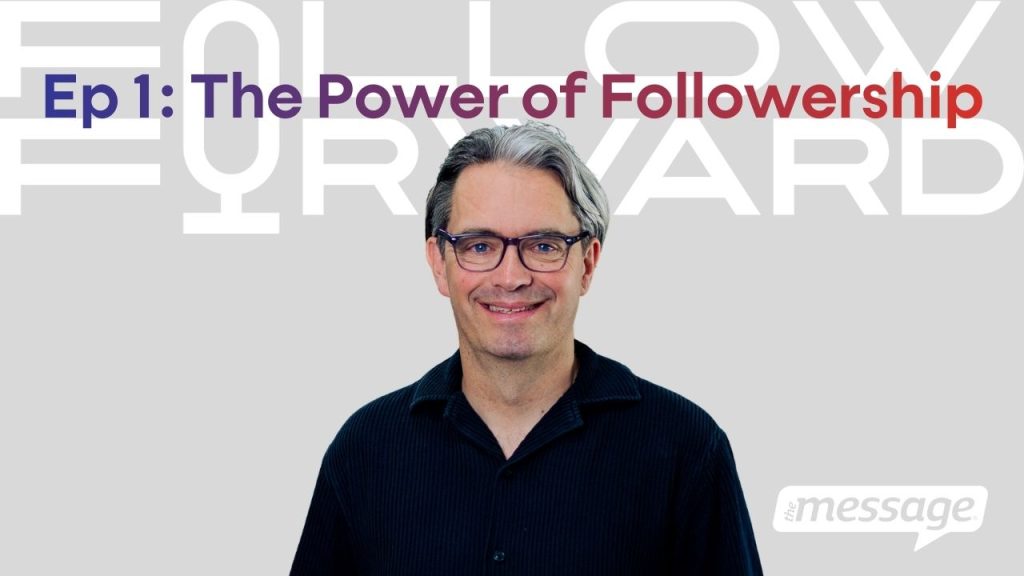Followership Before Leadership
There’s no shortage of leadership content available today. Podcasts. Books. Courses. Conferences. Seminars. You can study leadership at every level, even earn a PhD in it. And yet, a nagging question remains:
If we know so much about leadership, why are there so few great leaders?
The Problem with Our Leadership Obsession
We live in a culture obsessed with leadership. We talk constantly about influence, platforms, vision, and impact. But perhaps the problem isn’t a lack of leadership knowledge. Maybe we’ve been focusing on the wrong thing.
What if the issue isn’t that we need better leaders—but that we need better followers?
That may sound counterintuitive in a world that prizes visibility and authority, but the bible consistently points us in that direction. Before anyone is worth following, they must first learn how to follow well.
Follow my Example
The apostle Paul—arguably one of the most influential leaders in Christian history—puts it like this:
“Follow my example, as I follow the example of Christ.” (1 Cor. 11:1).
Paul didn’t ask people to follow him because he was impressive, gifted, or powerful. He invited people to follow him because his life was oriented around following Jesus. Leadership, at its best, is not about self‑promotion or control. It is the overflow of a life fixed on Christ. The effectiveness of our leadership is directly proportional to how closely we follow Him.
Jesus Himself made this clear. In John 13, after washing His disciples’ feet, an act of self-sacrificial humility, He said:
“I have set you an example that you should do as I have done for you.”
Jesus didn’t just teach leadership; He embodied it. He showed us how to serve, how to love, how to build relationships, how to live with integrity and compassion. To follow forward is to follow His example as we move through life and leadership.
Follow Forward
This is the name I’ve given to my recently launched podcast*. It’s highly intentional as I want to hold counter-cultural conversations about leadership.
It’s not about following trends.
It’s not about following personalities.
It’s not about building a following.
It’s about moving forward by fixing our eyes on Jesus—and bringing others with us.
This podcast will tell stories of people who were transformed by Christ and went on to become transformational leaders. Not celebrities. Not superstars. Often, ordinary people who do extraordinary things because they choose to follow faithfully. Those who have been rescued by Jesus, and are now following Him in the task of rescuing others.
Shifting the Spotlight: From Bad Leaders to Faithful Ones
Bad leadership dominates the headlines. Whether focusing on Christian or secular leaders, failures, scandals, and abuse of power get the airtime. This constant focus on failure distorts our imagination.
Across Africa, and around the world, I get to witness countless faithful leaders quietly serving, loving, building, and empowering others. These stories rarely make the news, but they deserve to be told. Follow Forward is about flipping the switch and changing the narrative.
This podcast intentionally amplifies global voices—particularly African voices—that don’t always get the platform they deserve. There is deep wisdom, resilience, and Christ-centred leadership emerging from this continent, and the world needs to listen.
Becoming Follower‑Focused
Once we are focused on becoming great followers of Christ, we can then become follower‑focused. That doesn’t mean counting how many people follow us on our social media platforms or attend our events. It means investing in those who will one day surpass us. True leadership is not threatened by the success of others. In fact, it delights in it.
One of the most powerful leadership images is that of a pace‑setter in a race. The pace‑setter isn’t there to win. They’re there to set the rhythm so others can reach their goal—sometimes even break records. That’s the kind of leadership Jesus modelled. That’s the kind of leadership we’re called to.
The Follow Forward Challenge
Through the podcast and associated media, I hope we can provoke you to think about the following:
- Are you dedicated to following Jesus’ example? How is this shaping your life and leadership?
- Who in your life has followed Christ in a way that shaped you?
- And, just as importantly, who are you doing that for now?
Because when we follow forward, fix our eyes on Jesus, and live for the good of those coming after us, we don’t just become better leaders. We become people worth following.
*This article relates specifically to episode 1 of the Follow Forward podcast.
The Follow Forward Podcast is a Christian leadership interview podcast capturing wisdom, faith, and lived experience from global Christian leaders who are shaping communities, ministries, and movements across Africa and beyond.
To find out more about the Follow Forward podcast, please click here.












